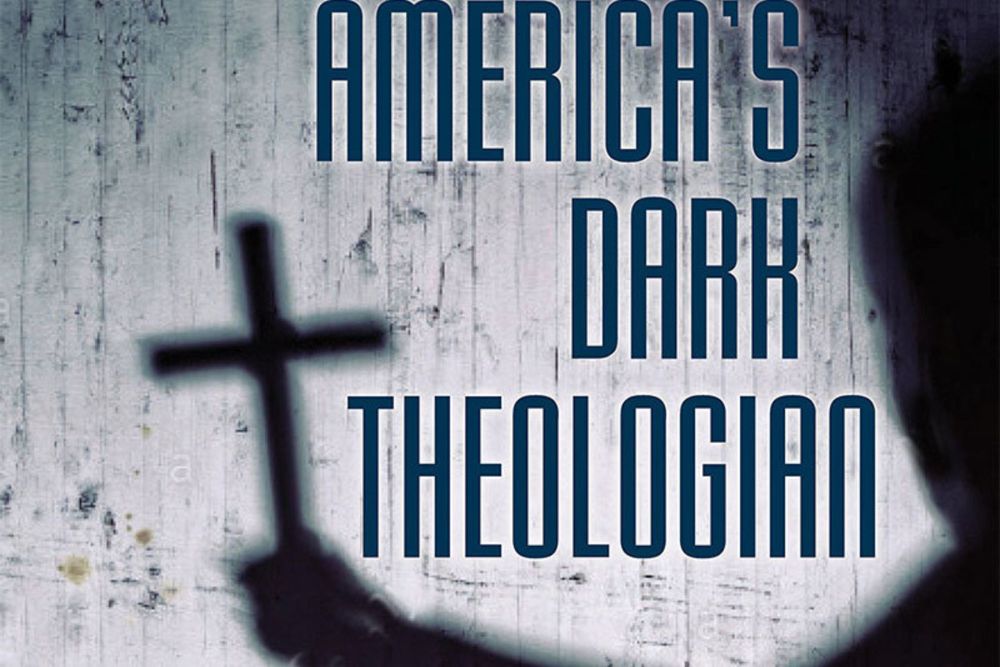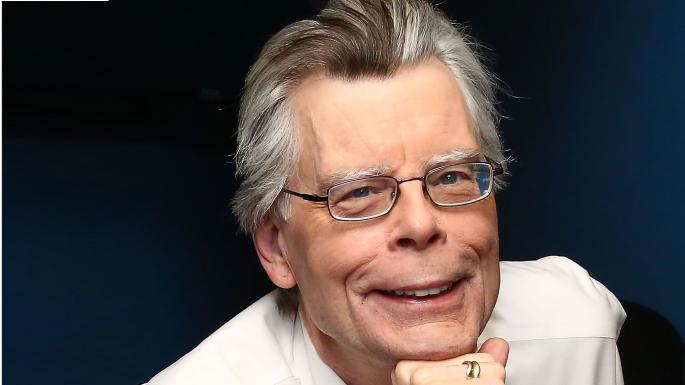
I recently wrote an academic book review for one of my research master courses. I took a publication of the Canadian Religious Studies scholar Douglas E. Cowan, entitled America’s Dark Theologian: the Religious Imagination of Stephen King.
A book review of America’s Dark Theologian (Douglas E. Cowan, 2018)
Tim Bouwhuis
‘’Writers invite ghosts. (…) Maybe, along with actors and artists, they are the only totally accepted mediums of our society’’.[1]
Alan Pangborn in The Dark Half (Stephen King, 1989)
With America’s Dark Theologian, Douglas E. Cowan (1958) provides a very particular and yet tremendously broad perspective on the extensive oeuvre of one of America’s most well-known novelists. ‘’This book’’, he writes, ‘’explores the storyworlds of Stephen King, and shows how his novels and short stories continually confront the answers we have been given about questions of ultimate meaning, questions we often think of as ‘’religious’’(…) Who are we? Where do we come from? Where do we go when we’re gone?’’[2]. These questions are eminently existential questions; they are not ‘religious’ per se. Cowan supports that notion, stating rather frequently that King uses his stories to ask questions that have come to be called ‘’religious’’ but are more appropriately called ‘’human’’.
Throughout the book, it remains unclear where we should situate the precise boundary between existential [or, in Cowans words, ‘’human’’] and religious. This boundary is important, because one of the aims of the book is to elaborate on the relevance of religious themes, questions and subtexts in King’s oeuvre. Throughout the chapters, Cowan traces the religious dimensions of a broad variety of novels, moving from the boundaries of reality (chapter 2) to the existence of ghosts and extra-terrestrial entities (chapter 3); from the ambivalences in our beliefs and convictions (chapter 4) to the role of ritual in daily religious experience (chapter 5); and from deeply personal religious experiences in a couple of King novels (chapter 6) to age-old theodicy-debates (chapter 7).
The book works best if you have read the surplus of the novels that are under discussion. Your own reading experience then enables you to follow Cowan’s arguments as he continuously shifts between different works of King, tying themes and questions together in the context of his understanding of religion. The last chapter readdresses the importance of religious elements in the oeuvre of King: ‘’To ask what ‘’religion’’ means in a storyworld, what it adds to the narrative, is in part to ask what happens if we take it away. How differently would America’s dark theologian read without the religious themes, plotlines and subtexts we’ve discussed throughout this book?’’[3]
Cowan outlines his conception of religion in the second chapter, ‘Thin Spots’. When we think of religion, he argues, three interrelated questions are usually at stake: what is it, what does it do, and what does that imply? He lists three types of approaches that correspond to the questions; structural approaches are mainly concerned with the ‘what’ of religion, functional approaches with the performative and/or practical dimensions. The third question allows Cowan and others to enter the realm of meaning. ‘’At their core’’, he writes, ‘’religious belief and practice contend that this is not all there is’’.[4] In that regard, the value of King’s works lies in their potential to configure and question, to mirror the title of the last chapter, ‘The Land Beyond’, or, as Cowan also calls it, ‘the unseen order’. These terms might indeed sound very speculative; however, they are actually in line with an utterance of King himself, quoted by Cowan: ‘’I believe there is an unseen world all around us’’.[5] Here it is evident that Cowan is taking King on his word, probing his expanded storyworlds to think about the unthinkable, which is something we can only do through fiction.[6]
The author’s understanding of religion, we see, is necessarily bound by the cultural background(s) in which the novels originate. Since Cowan does not perpetuate a strictly structuralist approach to the literature, taking the concept of authorial intentionality for granted, the religious (dis)affiliations of King himself are qualified to crystallize in his storyworlds. The book does not contain a paragraph on Cowans positioning within literary studies, possibly because Cowan is a religious studies scholar and a sociologist rather than a literary scholar. In the absence of these theoretical considerations, various quotes from King himself open up to the opportunity that we may hold Cowans themes and questions for Kings themes and questions.
The ubiquitous presence of the author makes it important to understand in which context Cowan is reading King and writing on religion. I discern a social-cultural level and a discursive level, that is, the types of readings and interpretations of King that the author is responding to. On a social-cultural level, Kings writing originate from an American and predominantly Christian context. King himself was a raised in a Methodist family. His books address characters who live either in fantasy worlds or American worlds; when we encounter characters that are socialized in a religious environment or engaged in religious groups, beliefs or practices, we are merely dealing with Christian denominations: the main character of Revival (2014) is a Methodist minister, Carries mother (1974) is haunted by the Catholic doctrine of original sin. Both examples are extensively discussed in the book.
On a discursive level, Cowan outspokenly opposes a trend in American pop culture critique in which ‘’everything that looks like religion must mean something else’’[7]. He claims that many reviewers and critics ‘’rarely note (…) the depth to which religious imagery, themes, characters, contexts, and problems inform the range of King’s horror fiction’’[8]. These interpreters suggest that religion is an exception, rather than the rule, in Stephen King’s work, claiming that his ‘real questions’ lie elsewhere. Cowans effort to highlight religious themes, characters and contexts is thus not only an attempt to address Kings questions [which he qualifies as ‘grist for the mill of our religious imagination’], it is also a reaction to a particular tendency in literary criticism.
Unfortunately Cowan does not explicitly foreground any contextualization of his book; one has to read between the lines to filter the predominantly Christian character of the religious (book) contexts and the particular discourses on King’s oeuvre and the role(s) of religion(s) in America. A paragraph on these two levels (not necessarily phrased in a similar way) would have helped to explain how Cowans conceptualizations of theology, religion and religious are to be properly understood and situated within both American culture and King’s oeuvre.

Now the author places his key terminology in a universal rather than a particular framework; he uses William James’ notion of individual religious experience, who asserted that ‘’the life of religion…consists of the belief that there is an unseen order, and that our supreme good lies in harmonious adjustment thereto’’.[9] Cowan chooses to apply this definition in his book because it ‘’is a great help to us in understanding Stephen King as the dark theologian’’.[10] In other words, James’ definition is merely functional, serving the main conceptions and purposes of the book.
The main reason that this is problematic is not even that Cowans preconceived notion of religion steers and determines the outcomes of his readings; it is merely that these readings and interpretations continuously bear the weight of untenable and unnecessary generalizations of what religion ‘is’. He writes, for instance, that ‘’religion, at its heart, is behavior based on belief, a perception of the world that, in the end cannot be confirmed or denied’’.[11] This observation aligns with a protestant prejudice of religion and belief as phenomena that are predominantly based in the mind. Although Cowan devotes one chapter to the role of ritual in the daily configuration of what he designates as ‘lived religion’, taking King’s Pet Semetary (1983) as a prime example, his analytical focus is on internal and supposedly non-material thoughts and processes.
To compile a stronger argument in favor of his consistent focus on the mind and James’ understanding of religion, Cowan could have chosen to engage in current Religious Studies debates on the balance between scholarly focus on mind and meaning and the assertion of Matthew Engelke and others that ‘’all religion is material religion’’.[12] It might have supported his choice to perpetuate the dated and frequently criticized ideas of James without further reflections on the discursive implications thereof. In his second chapter, however, Cowan states that he wants to avoid many of the problems that to this day plague Religious Studies. Unfortunately he does not explain which ‘problems’ he addresses, but the word ‘plague’ demonstrates that he holds a negative conception to particular developments in the field post-1902.
Cowans discussion of theology further complicates his terminology. According to him, we all ‘’do theology’’ when we somehow engage in the type of questions that King continuously poses in his oeuvre. ‘’What is a theologian’’, he asks, ‘’but someone who meditates in whatever fashion on the nature of reality?’’[13] This conception of theology is so broad-minded that it becomes difficult to detect questions in the realm of human philosophy that could not qualify as theological questions. Moreover, it further embroils the distinction between religion and theology; on the one hand, Cowan suggests that we focus on particular religious questions and themes because they matter; on the other, religious, theological and ‘’human’’ questions appear interchangeable and ill-defined.
The confusion that stems from Cowans use of definitions and conceptualizations raises one important question: were these choices necessary to meet the aim of the book, that is, to ‘’ confront the answers we have been given about questions of ultimate meaning’’? I take it that Cowan could have chosen to provide a work definition of religion that is explicitly tied to King’s storyworlds and the American contexts in which they feature, thus refraining from any attempt to universalize religion or our understanding of it. After all, the book is on literary conceptions of religion rather than on religion as such. Now, Cowan constantly draws comparisons between the questions of King’s characters and ‘’our questions’’, with actual reader experiences being only thriftily present. To make a stronger case for the author’s assessment that ‘’the stories we tell play an indispensable role in the ongoing human quest to understand our place in the universe’’[14], we would need pluralities at least, moving from the quest(ion)(s) of King towards the quest(ion)(s) of many.
Additional information
This book was reviewed for the course Doing Research, RMA Religious Studies, Utrecht University. Instructors: Christoph Baumgartner, Jo Spaans. 8-3-2019.
Author review: Tim Bouwhuis (5537908)
Literature
Cowan,
D.E. America’s Dark Theologian. New
York: New York University Press, 2018.
Engelke, M. ‘’Material Religion’’. In: R. Orsi (ed.), The Cambridge Companion to Religious Studies.
Cambridge: Cambridge University Press, 2012. 209-229.
Website Religion & Literature: https://religionandlit.nd.edu/submissions/.
Notes
[1] D.E. Cowan, America’s Dark Theologian (New York: New York University Press, 2018), 62.
[2] Cowan, America’s Dark Theologian, xii.
[3] Cowan, America’s Dark Theologian, 192.
[4] Cowan, America’s Dark Theologian, 41.
[5] Cowan, America’s Dark Theologian, 39.
[6] King’s introduction to The Bazaar of Bad Dreams (2015), quoted in Cowan, America’s Dark Theologian, 72.
[7] Cowan, America’s Dark Theologian, 13.
[8] Cowan, America’s Dark Theologian, 6.
[9] James in his 1902 Gifford Lectures, quoted in Cowan, America’s Dark Theologian, 41.
[10] Cowan, America’s Dark Theologian, 41.
[11] Cowan, America’s Dark Theologian, 51.
[12] M. Engelke, ‘’Material Religion’’, in R.Orsi, ed., The Cambridge Companion to Religious Studies (Cambridge: Cambridge University Press, 2012), 209.
[13] Cowan, America’s Dark Theologian, 28.
[14] Cowan, America’s Dark Theologian, xii.
